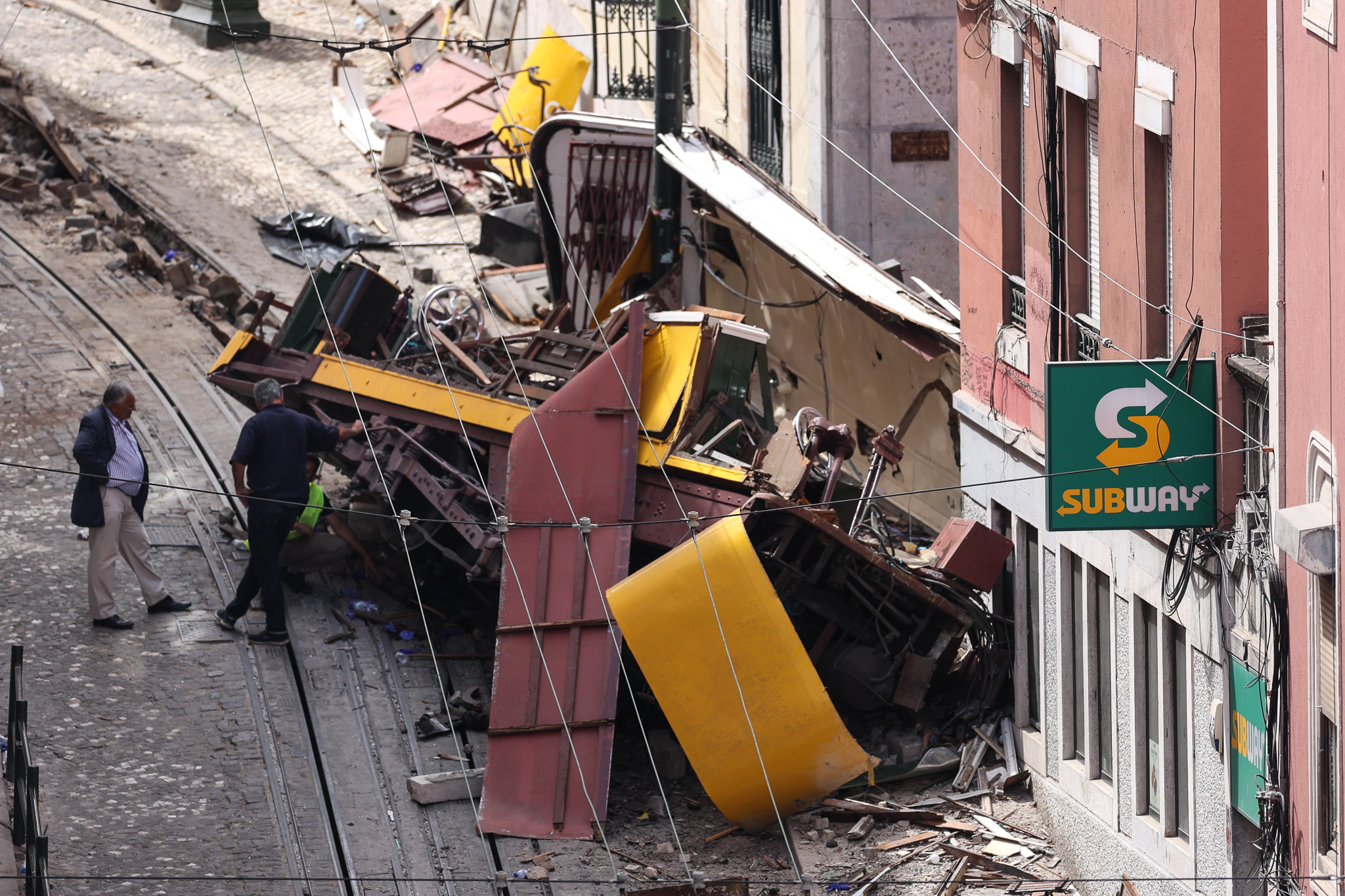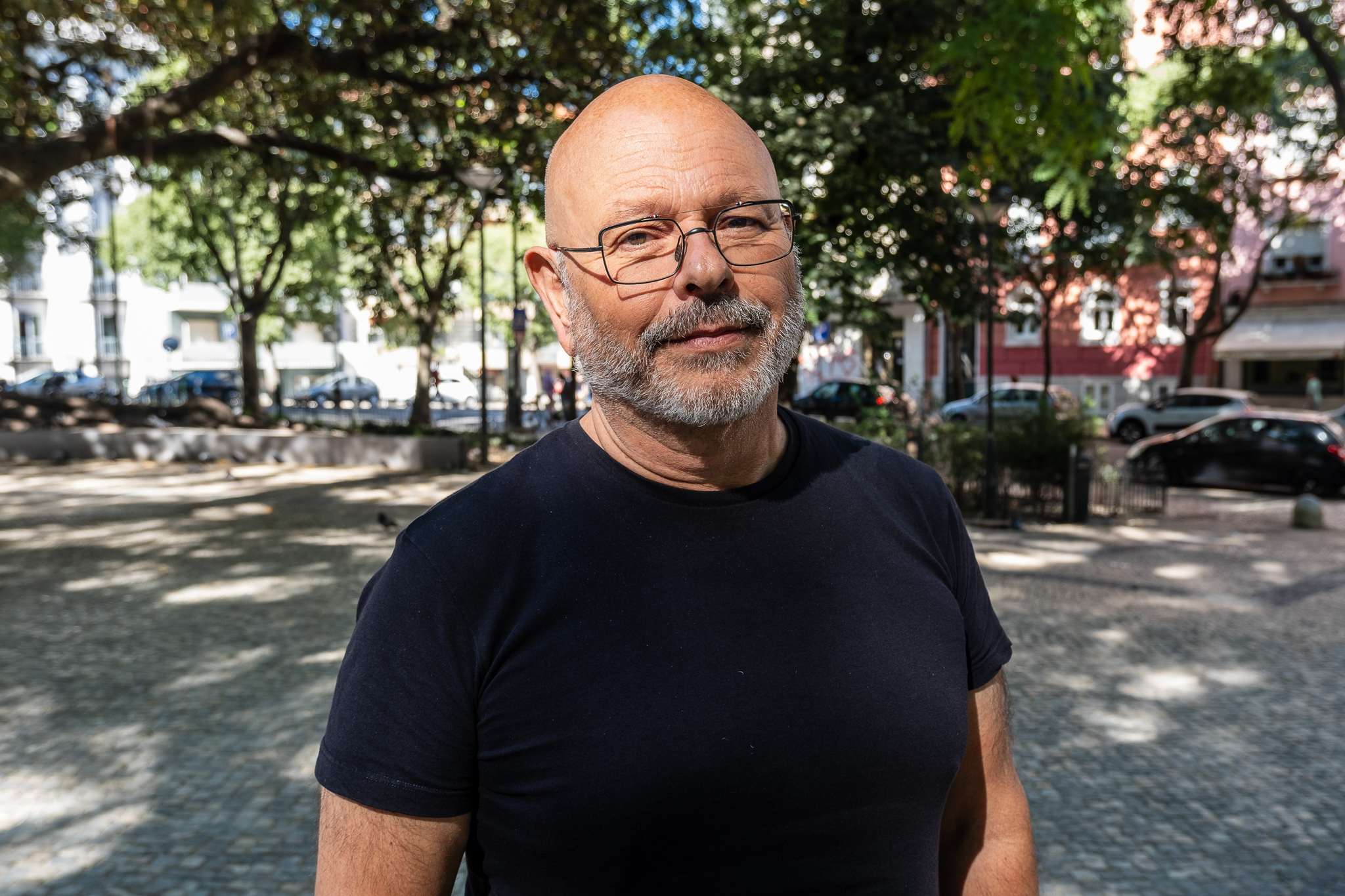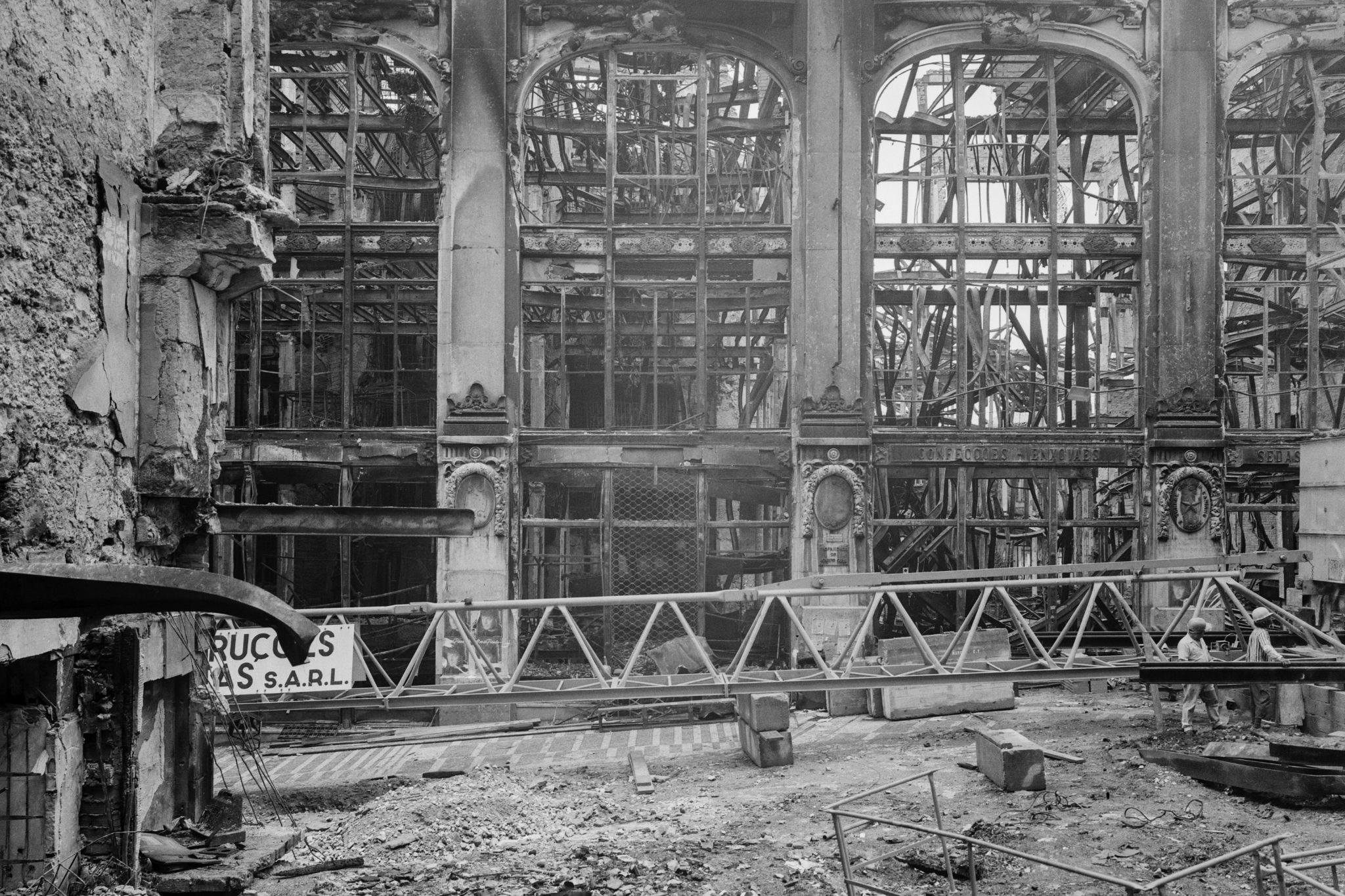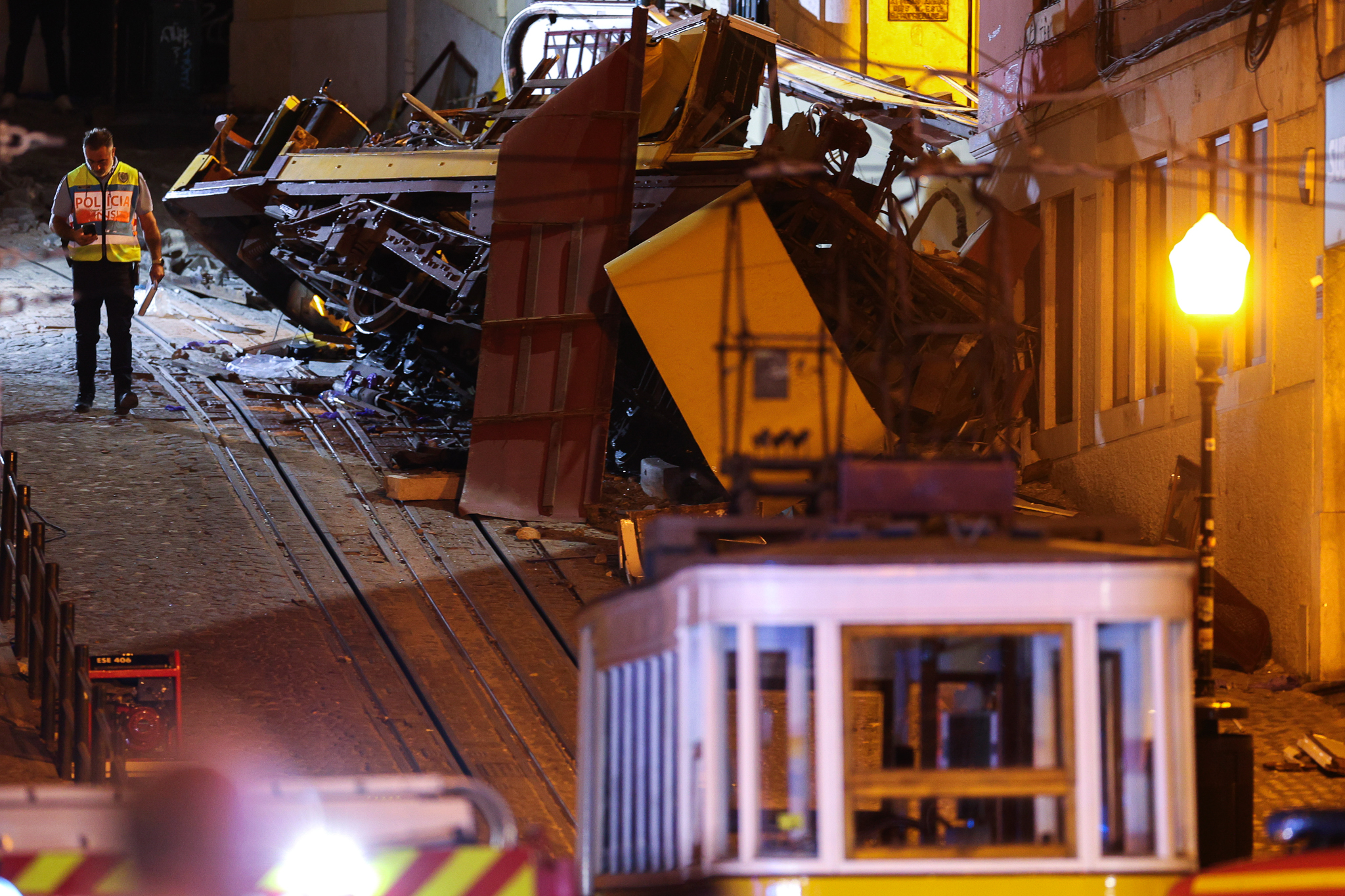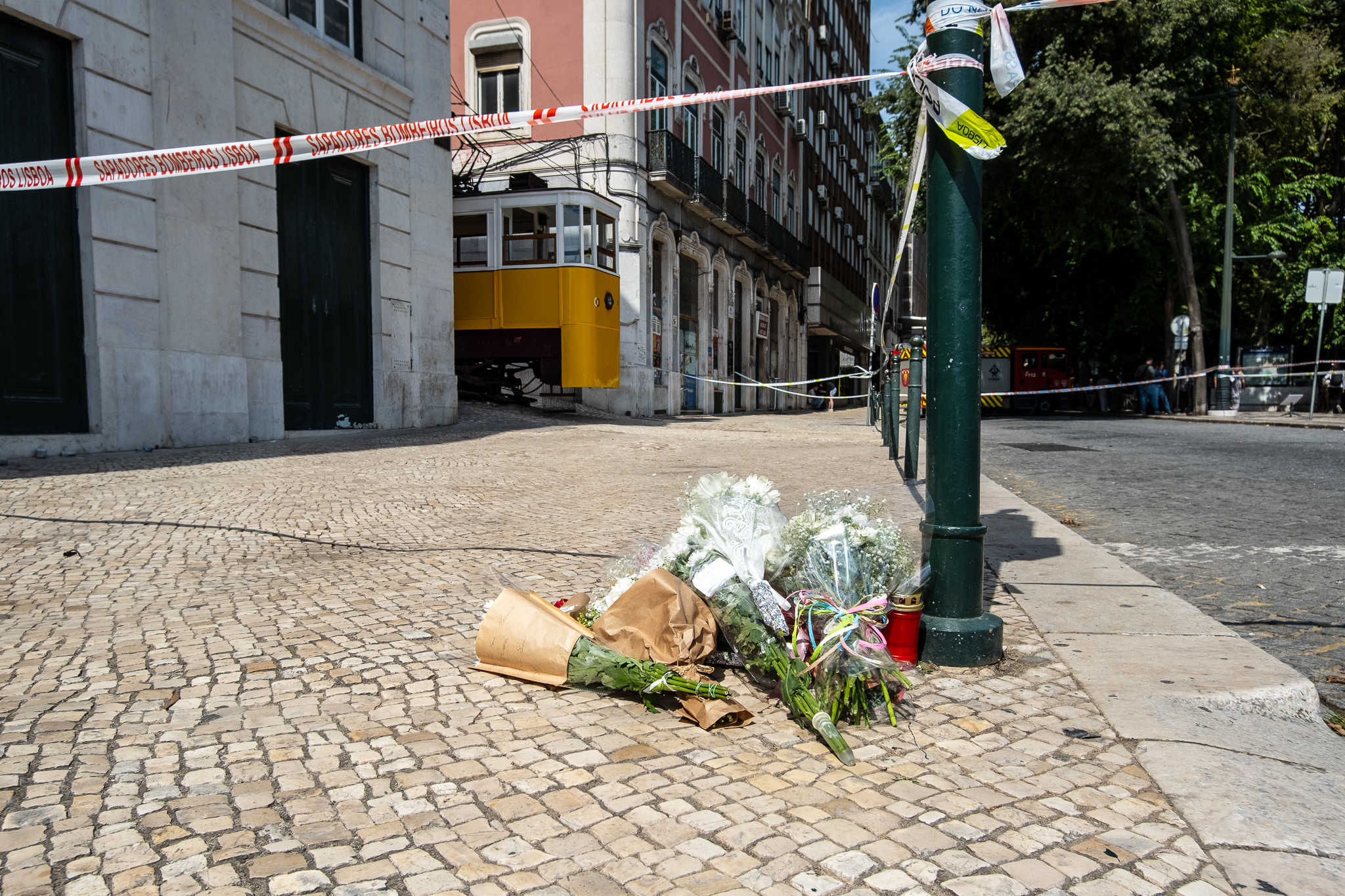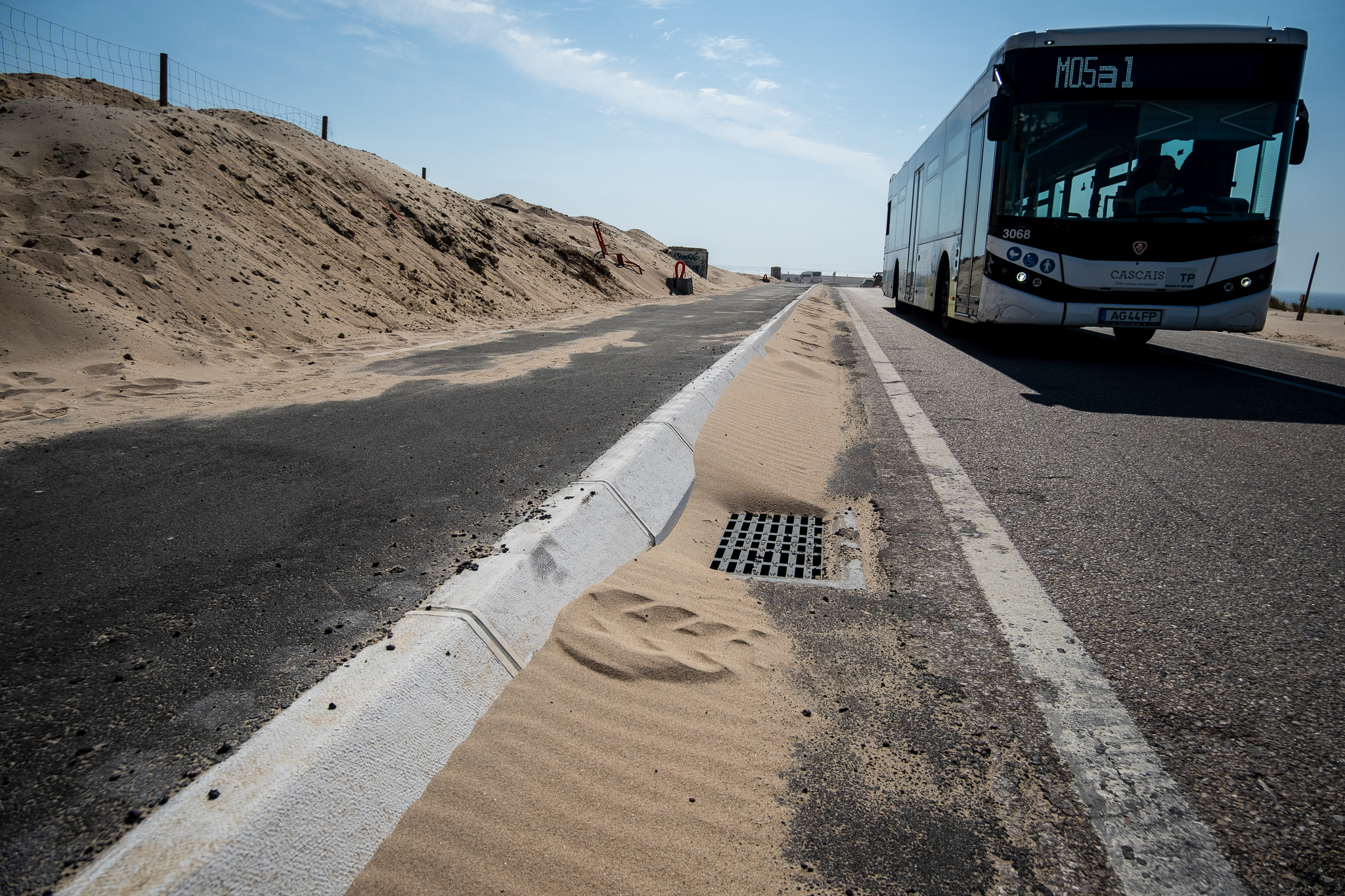It is already the fifth strike period in the railway sector this year. In 28 days of February, strikes affected at least 12 days. What do these strikes consist of? How many have there been? Does CP lose money? What do the Government and the City Council say?
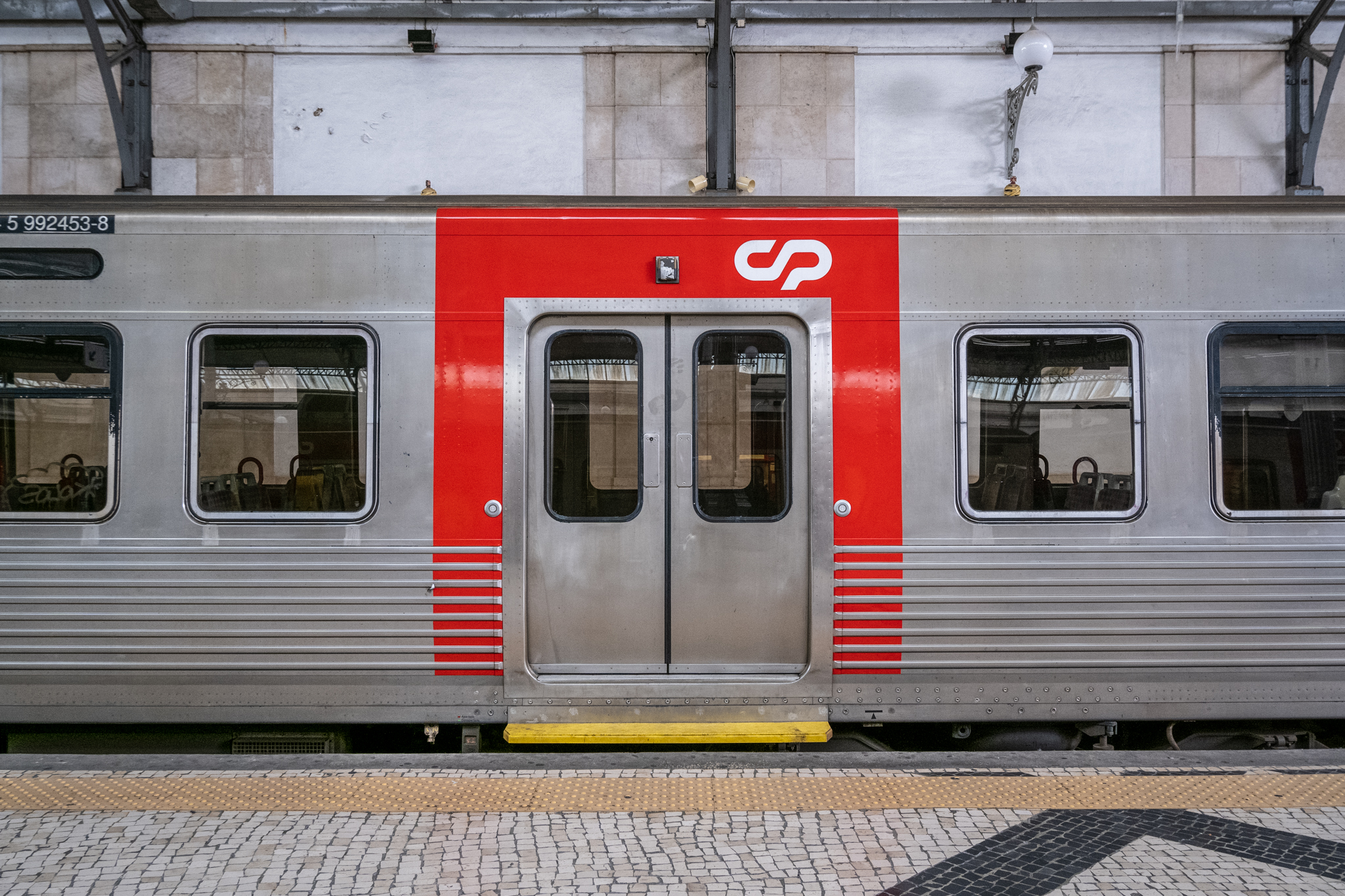
As of this Friday, the 10th, and for seven days (until the 17th), CP train drivers are on strike. The most critical day will be this Friday, with only 30% of the usual trains expected to run with the minimum services decreed.
This is yet another stoppage to affect the public rail operator's service since the beginning of the year. Workers want to be valued by the Government, but it has been silent. For his part, the Mayor of Lisbon already wants António Costa's executive to solve the problem, and has presented his position.
What do these strikes consist of?
Rail services can be affected by two types of strikes: both from unions representing CP workerswhich operates the trains; either from unions representing IP workerswhich is responsible for managing the railway infrastructure. When a strike affects IP, it means that the operations of CP and Fertagus (which operates the line between Lisbon and Setúbal) are affected, even though the workers of these companies are not on strike.
There are several unions representing the labor force of these two companies, and strikes can be called by one of these unions or by several. For example, the last major disruption in the national rail service resulted from a CP and IP strike; that strike was called by 11 union organizations: SINAFE (Sindicato Nacional dos Ferroviários do Movimento e Afins), SINTAP (Sindicato dos Trabalhadores da Administração Pública), SINFA (Sindicato Independente dos Trabalhadores Ferroviários, das Infraestruturas e Afins), ASCEF (Associação Sindical das Chefias Intermedias de Exploração Ferroviária), SINFB (Sindicato Independente Nacional dos Ferroviários), SIOFA (Independent Union of Railway and Related Workers), ASSIFECO (Independent Trade Union Association of Commercial Railway Workers), FENTCOP (National Federation of Transport, Communications and Public Works), STF (Railway Technical Services), STMEFE (Union of Metro and Railway Workers), and SNTF (National Union of Railway Sector Workers).
The strike that is now taking place is the responsibility of the SMAQ (Train Drivers Union).
Strikes are not always totalThey do not always affect a full day. They can be for overtime work, that is, overtime and weekly rest days. They can also occur after a certain number of working hours. In the case of 24-hour or prolonged strikes, they are usually decreed by the Arbitration Court minimum services, which will have to be met, and which is based on the assumption that rail operation is too essential a public service not to take place on an entire day in the country.
How many strikes have already affected CP this year?
The train drivers' strike that begins this 10th and lasts until the 17th is the third since the beginning of the year, but overall, CP workers have already stopped four times in 2023 alone. Let's have a calendar-summary?
- After a year end with strikes, the year 2023 started with a strike called by several unions representing CP and IP workers to the call additional work (overtime and weekly rest days), which began in late December and only ended on January 2nd. This strike affected some circulations;
- on days January 4th and 5th (a Wednesday and a Thursday), the CP train drivers made 24-hour strikehaving existed minimum services only for 30% services. And from January 3 to 8, there was another overtime strike, affecting several trains;
- February 8 to 21 (14 days)several unions representing CP workers, including train drivers, convened a strike, for which no minimum services were decreed and which resulted in major disruptions in the circulation of trains;
- between February 27 and March 1, new strike also called by several unions representing CP workers, but that did not involve the train drivers this time. Besides the strike that affected CP, there was also a strike on IP on the 28th and March 2ndThis means that the trains were disrupted in their normal running for a total of four days. The minimum services guaranteed the circulation of only 25% of the scheduled trains;
- a strike from March 10 to 17 (seven days), was convened by the union representing CP train drivers and will impact trains for seven days. The most critical day will be this day 10, Friday, and that the strike will be 24 hours. Between the 11th and 17th, the train drivers will stop working from 7:30 am. There are guaranteed minimum services.
All told, in the 28 days of February, the national rail service was stable for less than half (12 days)This has an impact on the lives of millions of people, particularly those who use the train to get from the suburbs to their jobs in the city. The last stoppage in February was marked by a incident on the Sintra LineOn March 1, in a train that was running late and overcrowded.
A shame about the CP situation #Comboio #Grieve #Lisbon pic.twitter.com/dufbxShOgJ
- Jheymison Breno (@JheymisonBreno) March 1, 2023
According to CP, this train was foreseen in the minimum services and was running in the direction of Sintra "with a 45-minute delay as a result of assistance provided to passengers on the immediately preceding trip"; "between Campolide and Benfica stations, about 700 meters from the station, a passenger triggered the alarm signal of the train that, at that moment, was running at full capacity"it says in a press release. The company says that this action by the passenger activated the security system, "immobilizing the train immediately", and that, "while the conductor was following safety procedures and moving to the carriage where the alarm signal had been triggered, some passengers opened the carriage doors and walked out onto the line".
The impacts of the strike are felt in other modes of transport, mainly those that connect the suburbs to the city of Lisbon, and of which there is no record of any reinforcement. At the Cacém intermodal interface, the PSP was called to intervene on a strike day to control entry into the Carris Metropolitana buses.
What do the railway workers ask for?
The main reason for the strikes - both in CP and IP - has to do with wages. The railway workers want their salaries to keep up with the rising cost of living, resulting from the country's economic and financial context. The problem begins with the people in charge of the two public companies: the government. Both on the side of the Ministry of Infrastructure, which manages CP and IP directly, and on the side of the Ministry of Finance, which releases the funds, the administration of CP (and also of IP) is only making increases of 5.1%, similar to what happens in the civil service. "But unlike the latter, in which the increase is based on the workers' base salary, in CP the increase is based on the total salary of all employees, which means that it already accommodates the automatic increases due to career progression to which the workers are entitled. Excluding this component, in average terms, CP staff would have an increase of 3.49%, which obviously does not satisfy them".Carlos Cipriano and Rúben Martins, journalists specialized in the railroad theme, explain, in Público.
In the recent podcast episode About CarrisThe two journalists from Público and Diogo Ferreira Nunes, from ECO, spoke with three railroad union members. One of them, Luís Bravo, president of SFRCI (Sindicato Ferroviário da Revisão Comercial Itinerante), defended an increase of 7.8%, identical to the inflation rate, to stop the strikes. The episode can be listened to here:
There have been negotiation meetings between the unions and CP management, but in a statement released on February 11, the SINAFE (Sindicato Nacional dos Ferroviários do Movimento e Afins) mentioned that it had kept "the proposal presented in the previous negotiation meeting, with some nuances that are not significant, nor close to SINAFE's demands". "Clearly conditioned by the government, the employer negotiator waved the order of the financial guardianship that limited the increase to 5.1% of the wage bill, which translates to another year of loss of purchasing power for CP workers"he added.
As written in Público, there are 17 unions connected to CP and each one has its own demands. The SMAQ (Train Drivers Union), which is signing the strike that is affecting this first half of March, is asking for "effective wage increases", "improvement of working conditions in driver's cabs and social facilities"as well as "of the safety conditions on the lines and stabling parks of the motor equipment"; also asks for "humanization of duty rosters, framed meal times, and reduction of off-site rests", a "implementation of an effective protocol for psychological monitoring of drivers in case of collision of people on the track and accidents" and the "recognition and enhancement of professional and training requirements for train drivers by the new legislative framework". "The Machinists fight against the accentuated and continued degradation of the living conditions of workers, demand the restoration of lost purchasing power and respect for their safety and working conditions"one can read in a communiqué published on the SMAQ website.
In another public communication, this one from the SNTSF (National Union of Railway Sector Workers), dated February 20you can read that "the fight must go on" because the proposed salary updates "do not respond to the needs of workers, nor do they restore the lost purchasing power, which adding the years 2022/2023 is in the order of 10%". "This will not happen by the initiative of the government/administrations, but by the pressure and mobilization of all workers in defense of their interests and the fundamental right and demand for a decent wage."the document reads, through which the union called for the mobilization of the entire CP and IP workforce. "The way forward is to unify and articulate struggles across all public transportation companies"the union also said.
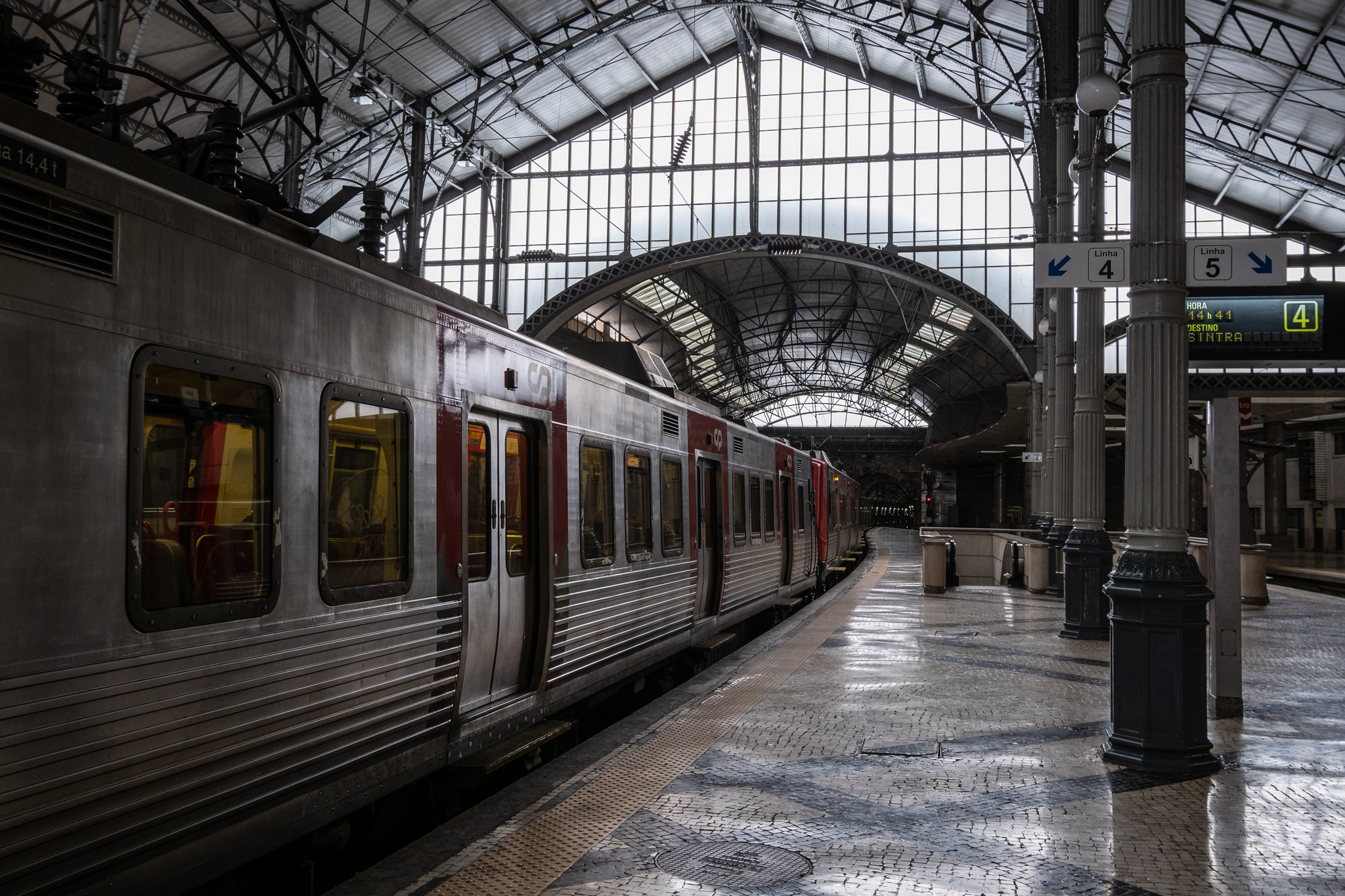
What does the government say?
The Minister of Infrastructures, João Galamba, has been silent and the talks between unions and his Ministry in order to unblock the labor impasse have been stalled, as reported by the press. António Salvado, from SINFA, said to the Lusa news agency on March 2 that it was "unbelievable" that during the four days of strike there was no attempt by the government to call off the strike and negotiate with the workers. "We went on a four-day strike so that someone would listen to us, and so far there has been no reaction from the ministers of infrastructure and finance. There hasn't been to date and we are going on the fourth day of the strike. It's incomprehensible how there isn't a little effort on the part of the authorities to reach an agreement.said Salvado, quoted by Lusa. "We are not light years away from an agreement. We want to negotiate. We asked for hearings before the strike and so far nothing."
Galamba's last public statements about CP are from the beginning of February. The Minister told journalists that there will be "always all the availability from the Government to meet and solve the problems that are being faced". A meeting between Galamba and the unions took place only on January 30th - according to FECTRANS, the federation that gathers several unions in the transport sector, was reportedly transmitted to Galamba "that it is necessary to look at the wage issue, not only from the point of view of restoring and valuing the purchasing power of workers who are in the companies, but as a way to retain workers, who are increasingly leaving these companies due to low wages, and to attract new ones with better qualifications".
However, both the government and the administrations of CP and IP will not easily unblock the claims, as explained by Público: "No softening of the Government's positions is to be expected, which has set the 5.1% for the civil service and understands that it should not give in on CP and IP because it runs the risk of there being a contagion effect on other organizations in the state business sector." So the company managements are sticking to the 5.1% wage bill increases (which result, in practice, in lower wage increases) and the Government is not willing to make exceptions either.
What does the City of Lisbon say?
The executive of the Lisbon City Council discussed this week, in a private meeting, a motion through which it takes an unprecedented position in relation to the railway system of the city and the metropolitan area. In the document that was presented by Carlos Moedas in the meeting and that was, in this meeting, improved with suggestions from the PCP councilmen, one can read that "it is with great concern that the Lisbon City Council verifies a growing dissatisfaction of the users of public rail transport, also associated with the recent disturbances in rail transport that have been felt and reported"; and, regarding the March 1st incident on the Sintra Line, the municipality refers that the Government has taken no responsibility for "of any mediation task leading to a normalization of railway circulation and urban and metropolitan mobility conditions".
"The impact of this absence of the rail policy that Lisbon and the country lack on the part of the government and the incentive to use rail transport also causes an increase in the use of private transport, in contradiction to the government's discourse on this matter and with strong negative impacts on mobility, health and air quality, which negatively affects the well-being of the population of Lisbon, with heavy traffic congestion on the main arteries of the city, at practically every hour of the day."
- motion presented by Carlos Moedas
The City of Lisbon thus asks the Government to take "the necessary measures to solve the problems that affect the use of the railroad in the city of Lisbon and surrounding municipalities and, the Assembly of the Republic, to promote a broad parliamentary debate on the Government's public mobility policy". In the motion, the Lisbon municipality assures that it will do its part and that "will not fail to assume its responsibilities in this and other measures and policies it develops with the aim of promoting a safe, sustainable and predictable mobility that, rather than causing inconvenience to users, aims to facilitate fluid circulation in the city and in travel to and from neighboring municipalities".
"It is because of the need for concerted policies, and defending the interests of Lisbon's citizens and the people who study, work and visit the city of Lisbon, that the Lisbon City Council intends to take a position through this motion"The document also talks about the delayed investments in this field. "The rail dimension of urban mobility has not been duly taken care of by the Government. In structural terms, it should not only be noted the delay in the implementation of the Railway 2020 Program, which should have ended in September 2021, but also the delay in the requalification and replacement of the rolling stock, whose first compositions, for the regional service, should only begin to be delivered in 2025, seven years after the Government approved the respective acquisition."
The motion was discussed and voted on at the meeting, with six votes in favor, six against, and one abstention. Since there was a tie, the Speaker of the House has the so-called casting vote, that is, your vote is worth twowhich would allow the motion to be approved. However, the PS contested the casting vote given to the Vice President, Filipe Anacoreta Correia, who was leading the meeting in place of Carlos Moedas, so the matter was referred to the municipal services for evaluation and the final vote was eventually postponed.
However, the existence of this motion allows us to know the position of the Mayor of Lisbon and the executive in relation to the current situation in CP and the railroad.
Does CP lose money with the strikes?
This is one of the big questions that are being asked in relation to this theme. Although it is in the suburban service that CP has more passengers, it is in the long distance (Intercity and Alfa Pendular) that the operator earns more money. According to the newspaper Público, in 2019, before the pandemic, CP earned 500 to 700 thousand euros per day with ticket salesof which only approximately 100,000 euros came from the passes. "At that time, the company had even achieved operating profits of 4.4 million euros, which means that, were it not for the debt burden, CP would not be a loss-making company."is explained by that newspaper. "It is a myth that the company makes up for lost revenue with what it saves in operating costs by not running trains. On the contrary, the loss of revenue is devastating to its accounts and what it has already lost in these strikes would give to meet the wage demands of its workers."
The Liberal Initiative, on the other hand, said it will present a proposal in Parliament to return to CP passengers the value of the pass corresponding to the strike days. According to Rui Rocha, the party leader, quoted by Lusa, "the return of the value of the pass corresponding to the days when there is no service and therefore people have to go either by alternative public transport, or by their own means, or by cab and Uber transport services". However, if there are CP's own passes in which this return may be possible, in the case of passes such as the Navegante that include several modes of transport, it is difficult to quantify how many of the holders of this pass use CP and whether they use a lot or a little, for example.

